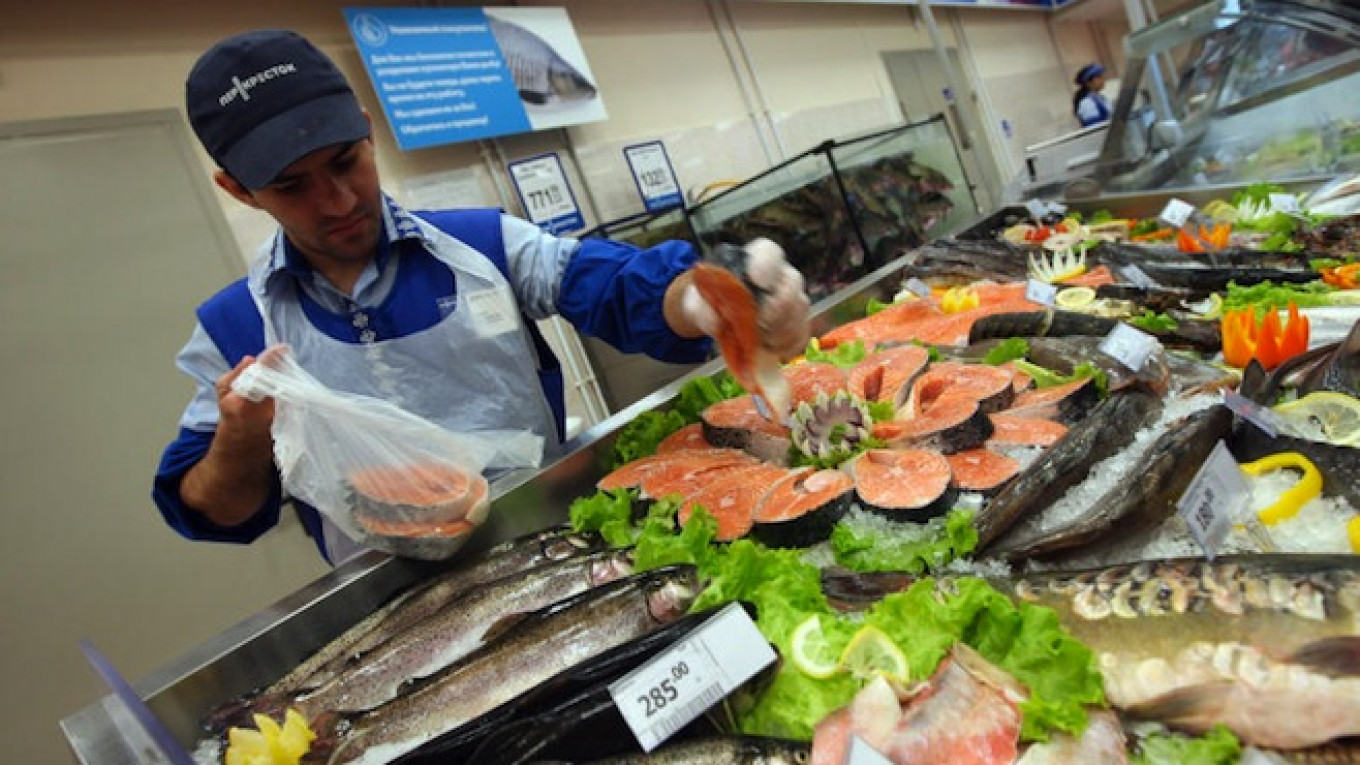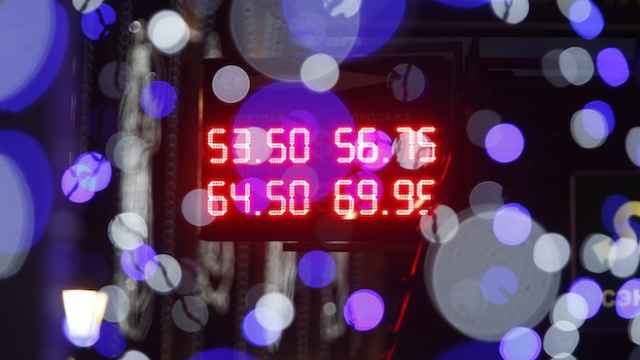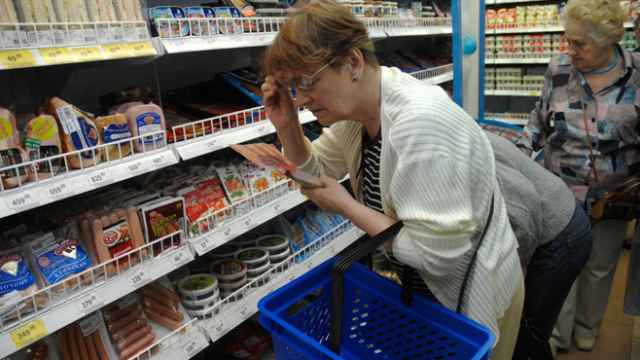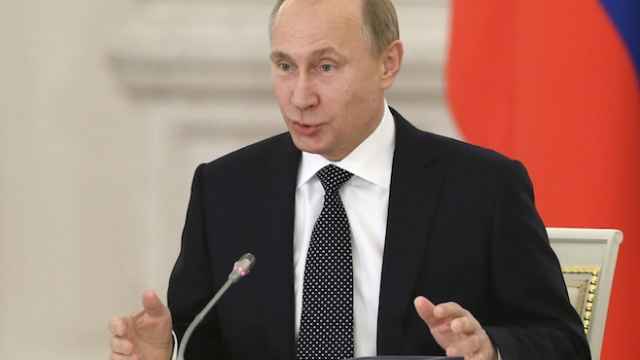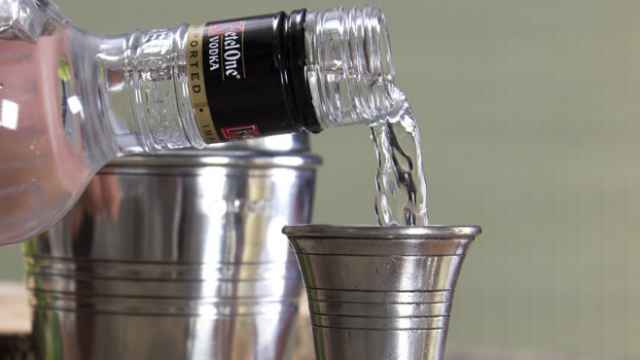Russian prosecutors must monitor the price of fuel, food and medicine and act if wages or benefits are delayed, the head of President Vladimir Putin's administration was quoted as saying Monday, signaling growing Kremlin fears about inflation.
Sanctions imposed by the West over the Ukraine crisis, a retaliatory ban on Western food imports and a plummeting ruble have spurred inflation in Russia, particularly hitting the cost of staple foodstuffs and prompting officials to warn "speculators" against trying to cash in by raising prices.
Sergei Ivanov, head of the presidential administration, was quoted by the RIA news agency as saying that an increasing number of Russian citizens every year were turning to prosecutors to seek protection of their rights.
"Given the difficult economic situation, you must help monitor the pricing of fuel, food products, medicine, and immediately respond to workplace violations, to delays and other irregularities in the payment of wages and social benefits," he told prosecutors on the national "day of prosecutors."
"Now, as before, the main thing you need to pay attention to is the protection of their [citizens'] legal rights and interests, primarily in the social sphere."
Officials have expressed concern about the rising prices of food which are squeezing real wages. In December, Putin instructed the government to employ a "hands-on" approach with producers to make sure prices do not rise uncontrollably.
According to preliminary data from the federal statistics service, inflation reached more than 11 percent last year, with food prices increasing by more than 15 percent, fueled by a weaker ruble which fell more than 40 percent against the U.S. dollar in 2014.
The Russian currency has dropped a further 10 percent since the beginning of the year, dragged lower by plunging oil prices.
To stem increases of staple goods, the Agriculture Ministry has moved to curb exports of grain to protect bread prices and the government has offered incentives to agriculture, especially milk producers, to cover shortfalls left by the import ban.
There have been no major protests over the economic crisis so far and Putin's popularity soared after Russia annexed the Crimea peninsula from Ukraine last March. But critics say he risks a wave of protests if prices rise sharply in the coming months.
A Message from The Moscow Times:
Dear readers,
We are facing unprecedented challenges. Russia's Prosecutor General's Office has designated The Moscow Times as an "undesirable" organization, criminalizing our work and putting our staff at risk of prosecution. This follows our earlier unjust labeling as a "foreign agent."
These actions are direct attempts to silence independent journalism in Russia. The authorities claim our work "discredits the decisions of the Russian leadership." We see things differently: we strive to provide accurate, unbiased reporting on Russia.
We, the journalists of The Moscow Times, refuse to be silenced. But to continue our work, we need your help.
Your support, no matter how small, makes a world of difference. If you can, please support us monthly starting from just $2. It's quick to set up, and every contribution makes a significant impact.
By supporting The Moscow Times, you're defending open, independent journalism in the face of repression. Thank you for standing with us.
Remind me later.


